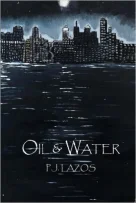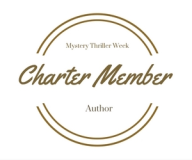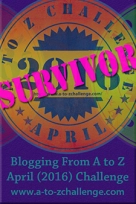 [Rev. James DeWolf Perry, Jr. (1838-1927), was the “one dissenting voice” at an October 1918 meeting of Philadelphia Episcopal clergy during a deadly influenza outbreak. He refused to join their protest of the City’s ban on church services, an emergency measure to curb the spread of the deadly virus.]
[Rev. James DeWolf Perry, Jr. (1838-1927), was the “one dissenting voice” at an October 1918 meeting of Philadelphia Episcopal clergy during a deadly influenza outbreak. He refused to join their protest of the City’s ban on church services, an emergency measure to curb the spread of the deadly virus.]
Bio: William Carl Smith is a lawyer and writer in Narberth, PA. Church is something of a family business for Bill, who is a deacon at Philadelphia’s Arch Street Presbyterian Church, and a co-leader of ASPC’s monthly pub-based Church in the Alehouse and a co-moderator of the weekly lunch-based “Good Book Club” Bible Study. Bill is also the husband of Rev. Judith M. Brackett, Director of Family Ministries at Ardmore Presbyterian Church; the brother-in-law of Pastor Jim Dougans of the First Presbyterian Church of Maysville, KY; the stepbrother of Rev. Ruth Beresford of Christ Church Christiana Hundred in Wilmington, DE; and the son of the late Rev. Carl R. Smith, Jr., who was Donald Trump’s pastor in the 1960s, when the future president’s family belonged to the First Presbyterian Church of Jamaica, Queens, NY.
My friend and work colleague, Bill Smith is also a great writer with his finger on the pulse of people, politics, and that which moves us. I thought this article a very fitting post for today since it’s Easter Sunday and we are banned from gathering, but it applies not just to Christians, but to all people of faiths who had to give up worshipping with their loved ones during this season of renewal because of the coronavirus. Our faith teaches us that we are all one in spirit and with that understanding, maybe the pain of separation on these, our holiest days, becomes a little less knowing that our love and affection for one another transmute the 3-D world. Take heart. As with all, this too shall pass. What life looks like on the other side is an unknown, but I encourage you to envision the kind of world that would make your children proud to be a part of and then call it into being. You got this. You know you do.
And without further ado, here’s Bill:
“There Was But One Dissenting Voice”:
Prayer and Pandemics in 1918 and 2020
by William Carl Smith
A pandemic ravages the world, infecting and killing thousands. U.S. cases increase exponentially, as asymptomatic Americans infect loved ones at home, neighbors on the street, colleagues at work, and worshippers in the pews.
Thousands of Americans get sick. Many die. The federal government dithers as the body count mounts, forcing desperate state and local authorities to close schools and non-essential businesses, and prohibit public gatherings . . . including church services.
For some pastors, this last measure simply goes too far. Their faith compels them to pray and repent together during this perilous pestilence, they argue; the government has no business telling Christians where and how to worship.
If this reads like a story “ripped from the headlines,” it is. Struggling to “flatten the curve” of coronavirus infections and deaths, state and local officials nationwide have banned public gatherings, including religious services. By and large, churches have willingly complied. Even in states like Pennsylvania with religious exceptions in shutdown orders, most churches have “gone virtual” — substituting streaming for gathered worship.
[Like many houses of worship nationwide, Philadelphia’s Arch Street Presbyterian Church is closed and empty during coronavirus crisis (top). Instead of gathering in the pews, the congregation logs into online worship, Bible study, and other meetings.]
[Rev. Carla Jones Brown, Arch Street’s head of staff, led Palm Sunday service on April 5 (top) as the congregation participated via the “Zoom” videoconference app (bottom).]
Some pastors and churches, though, are defiant. “The virus, we believe, is politically motivated,” said Rev. Tony Spell of Life Tabernacle Church in Baton Rouge, La., claiming that he sent 27 buses to gather over 1,000 worshippers in violation of the state’s stay-at-home order. “We hold our religious rights dear and we are going to assemble no matter what someone says,” said Spell.
Solid Rock Church near Cincinnati posted on Facebook that its doors would remain open as long as the First Amendment was unchanged. “If there ever was a time in the history of our world when we all need God’s help, it is now,” the evangelical church said.
Rodney Howard-Browne of The River at Tampa Bay Church boasted that his church would close only “when the Rapture is taking place,” he said. On March 30, Tampa police arrested Howard-Browne for flouting Florida’s public gathering ban.
President Trump believes that Americans should go back to church, and work, as soon as possible. On March 24, Trump mused that the holiest day on the Christian calendar would be a “beautiful time” to end America’s COVID-19 shutdown.
Our erstwhile Presbyterian president envisioned “packed churches all over our country” on Easter Sunday, April 12, although he has since backed down from this data-free deadline as an “aspiration.” Most churches remained closed for Holy Week, but some pastors are still packing the pews during the pandemic, supported by conservative politicians. Republican Kansas legislators rescinded an emergency order by Democratic governor Laura Kelly limiting church services to ten worshippers, after an outbreak traced to a church conference caused at least 15 COVID cases, including one fatality.
Yes, you can read all about preachers and pandemics in today’s newspapers…and also in the century-old archives of the Philadelphia Inquirer.
In 1918, the inaccurately named “Spanish Flu” killed an estimated 45,000 American soldiers in the final months of World War I – nearly equaling the total WWI U.S. combat deaths. President Woodrow Wilson was also stricken, but did little and said nothing publicly about the global pandemic.
[On September 18, 1918, days after the influenza outbreak in Philadelphia, the City threw itself a huge outdoor party. An estimated 200,000 spectators — an unknown number carrying the flu virus — packed and hacked along the Broad Street route of the World War I “Liberty Bond” parade.]
The virus slipped unnoticed into the city on September 7, 1918, when a merchant ship from influenza-ravaged Boston docked at the Philadelphia Navy Yard. Within 10 days, over 600 servicemen and local civilians were hospitalized. Downplaying the threat, the city’s Board of Health did not impose a quarantine, or any other restrictions to minimize the infection rate. Instead, Philadelphia went ahead with a massive war bond parade on September 18, 1918. An estimated 200,000 Philadelphians packed the parade route, including an unknown number of infected spectators.
The city’s bungling initial response turned a bad — but potentially manageable — public health crisis into a deadly catastrophe. In late September, after the flu claimed over a thousand lives in the Philadelphia area, the Board of Health finally stepped up, closing schools and public gathering places such as theaters, bars, and churches.
The leadership of the City’s most prestigious and powerful Protestant denomination also stepped in – not to protect parishioners from pathogens, but to whine about the shuttering of their sanctuaries.
[Philadelphia Inquirer, October 18, 1918]
“Pastors Protest Church Closing,” blared the Inquirer’s October 18, 1918 headline about a resolution from 23 Episcopal priests opposing the church closure. While public worship was banned, the clergymen complained, city residents could still “crowd in cars and stores on the plea that ‘business must go on.’”
“It is more important to pray to God than to carry on business,” read the near-unanimous resolution, “it is the opinion of the Protestants that God will care for His people when they meet to plead with Him.”
However, this was not the opinion of all Protestants in the room, the Inquirer observed:
There was but one dissenting voice in the conference, that of Rev. Joseph De Wolf Perry, pastor emeritus of Calvary Church, Germantown. After declaring that he believed the action of the health authorities should be sustained, he left the meeting.
Journalism is the first draft of history, the saying goes, so the unnamed reporter may be forgiven for misstating the Christian name of the 80-year-old Rev. James DeWolf Perry, Jr. The reporter also did not specify Rev. Perry’s reasons for siding with the Board of Health over his white-collared colleagues.
However, genealogy provides a clue. The pastor’s son, the uncreatively named James DeWolf Perry III, had followed his father into the ministry, becoming the Bishop of Rhode Island in 1911. In WWI, he served as head of the American Red Cross chaplains in Europe, nicknamed the “Bishop in Boots.” The elder Rev. Perry likely learned from his namesake about the hellacious influenza outbreak killing thousands of doughboys in the crowded trenches of France. If so, Rev. Perry must have considered his fellow clergy in Philadelphia to be murderously ignorant in demanding to pack the pews as the epidemic raged.
[Public historian James DeWolf Perry is the great-great grandson of the Episcopal priest who defied his fellow Philadelphia clergy by supporting the City’s ban on church services during the 1918 influenza pandemic.]
Whatever compelled Rev. Perry to spurn his clerical peers in 1918, though, his great-great grandson (also named James DeWolf Perry, of course) is gratified that his ancestor took this stand.
Perry, a public historian, author, and co-founder of the Tracing Center, a racial justice nonprofit in Massachusetts, is pleased that his kin “saw the wisdom in suspending public worship during a deadly epidemic. I doubt very much that, as the resolution suggested, the Lord intends for Christians to gather as usual and rely upon divine protection from disease.”
As a devoted Episcopalian himself, Perry and his wife have been working throughout the COVID-19 crisis with New England parishes and dioceses “to suspend public worship, and craft appropriate substitutes and other precautionary measures.”
In 1918, Philadelphia’s haphazard response to the influenza outbreak– exacerbated by self-serving, short-sighted religious leaders — was tragically typical of many cities. This attitude contributed to the pandemic’s ghastly toll of 50 million deaths globally, including over 17,000 Philadelphians.
Perry prays that religious leaders are part of the solution, rather than a problem, in addressing the current pandemic.
“I’m a strong believer that our faith doesn’t require us to put our own health, or the health of others, in jeopardy, but calls us to do the exact opposite,” he says. “If it is hard for us as Christians, especially during such a trying time, to refrain from gathering in person for worship and fellowship, then I see it as a test of faith and a measure of our love and devotion for our fellow human beings.”
***
Thank you, Bill, for your insight.
And to everyone reading, if you are the one dissenting voice in your tribe, stay strong and continue being the voice of reason. As Abraham likes to say:
And because it’s a holy day, let me leave you with this beautiful rendition of one of my mother’s favorite songs. She loved the Andrea Bocelli/Celine Dion version, but this one by Mat and Savanna Shaw is equally stunning:
Be safe. Be well. xo
pam lazos 4.12.20

















Reblogged this on Momentary Lapse Of Sanity.
LikeLiked by 1 person
I hated seeing the churches close, but I do understand. It’s just not easy. Sigh.
LikeLiked by 1 person
That it is not. But better to be healthy and live to pray another day, eh, Jean? ;0)
LikeLiked by 1 person
Indeed, Friend, indeed 🙂
LikeLiked by 1 person
🥰
LikeLiked by 1 person
I’m with President Trump on this. I was shocked when my sister told me her church was closed. Of all time to be open, when people need faith and support the most, this is it.
LikeLiked by 1 person
My church is doing virtual mass. Not quite the same, but much safer, Jacqui.
LikeLike
I’m skeptical about whether God wants us to spread the virus while spreading the Word. Sadly, there have been several reported cases of pastors and parishioners falling ill and in some cases dying of COVID after defying guidance and/or regulations against public gatherings. Rev. James DeWolf Perry was right in 1918, and his great-great grandson is right in 2020.
LikeLike
We should have learned from the 1918 pandemic. History teaches us so much, but some don’t pay attention.
LikeLiked by 1 person
That’s because no one reads books anymore, Michele. ;0)
LikeLiked by 1 person
What a fascinating bit of history that rings true in today’s world. I didn’t know that the churches were asked to close during the Spanish Flu. I cannot fathom why any church would be holding Easter services during a pandemic, but logic may not be the strong suit of some pastors who clamor for attention.
LikeLiked by 1 person
It’s the idea that God will keep us Covid-free because we’re praying, that is so crazy. 😳 People never stopped praying yet Covid-19 abounds.
LikeLiked by 1 person
Nor I, Ally. The idea of praying away the virus is crazy.
LikeLike
History teaches, but we refuse to learn. During the 1918 pandemic, cities like St. Louis that imposed early bans on public gatherings had much lower mortality than cities like Philadelphia that didn’t. (As mentioned in the article, Philly hosted a massive parade at the height of the pandemic.
LikeLiked by 1 person
oh my….we’re being more careful than some I guess. Hope they will be ok.
LikeLiked by 1 person
Better safe than sorry. 😐
LikeLike
Amazing, in these days of on-line interaction that some people can remain so stubborn. Fascinating post, Pam.
LikeLiked by 1 person
I continue to be stunned on a daily basis. Hope you are hanging in there, Cath.
LikeLiked by 1 person
Thanks, Pam, we’re enjoying some fairly gentle spring weather here. Living in the countryside makes the whole situation seem a little unreal.
LikeLiked by 1 person
For me as well. We’re not rural, but have a lot of farmland around and it changes the tenor of things for the better, I think. 🤔
LikeLiked by 1 person
I heard on the news of this 102-year-old woman, born just before the Spanish Flu Epidemic of 2018 and this interview was incredible – may we all have our faculties and a strong fortitude in our later years: https://www.washingtonpost.com/history/2020/04/05/centenarian-coronavirus-1918-flu-depression-world-war-2/
LikeLiked by 1 person
I think I read an article about this woman, Linda! She’s awesome.
LikeLiked by 1 person
Yes she is Pam. I heard a story on the radio at the beginning of the year about a Marine who was 102 years old. I found the story online and read about him. He had made scrapbooks of his entire military career and filled his room at the nursing home as well as his scrapbooks with cherished career mementos. A reporter who interviewed him said he asked for valentines to be sent to add to his scrapbooks. I don’t usually do that for adults asking for cards, although I’ve done it for terminally ill kids a few times, but I sent a Valentine’s Day card. He promised to acknowledge each one – I am sure he was overwhelmed and will never do that. He was like this woman – you’d never guess either of them were the age they were, just bubbly centenarian personalities and full of life.
LikeLiked by 1 person
If it’s the same women I read about, her husband was in the army and he lived to be 102 or 104!
LikeLiked by 1 person
Yes, I think so – she was a schoolteacher for three years while he was away. She had an interesting life.
LikeLiked by 1 person
Beautiful song choice.
LikeLike
Thanks, dear Rosaliene. xo
LikeLike